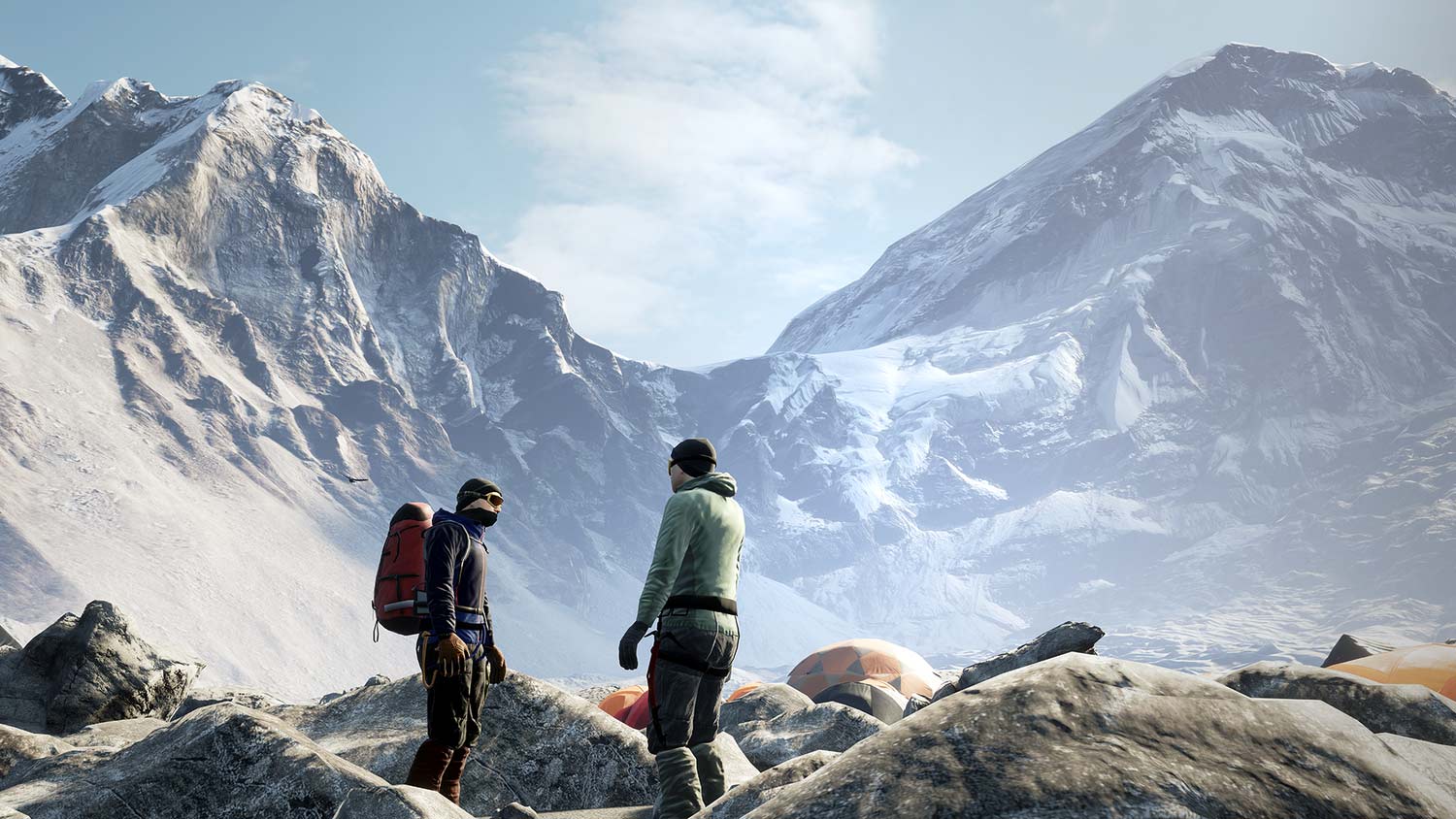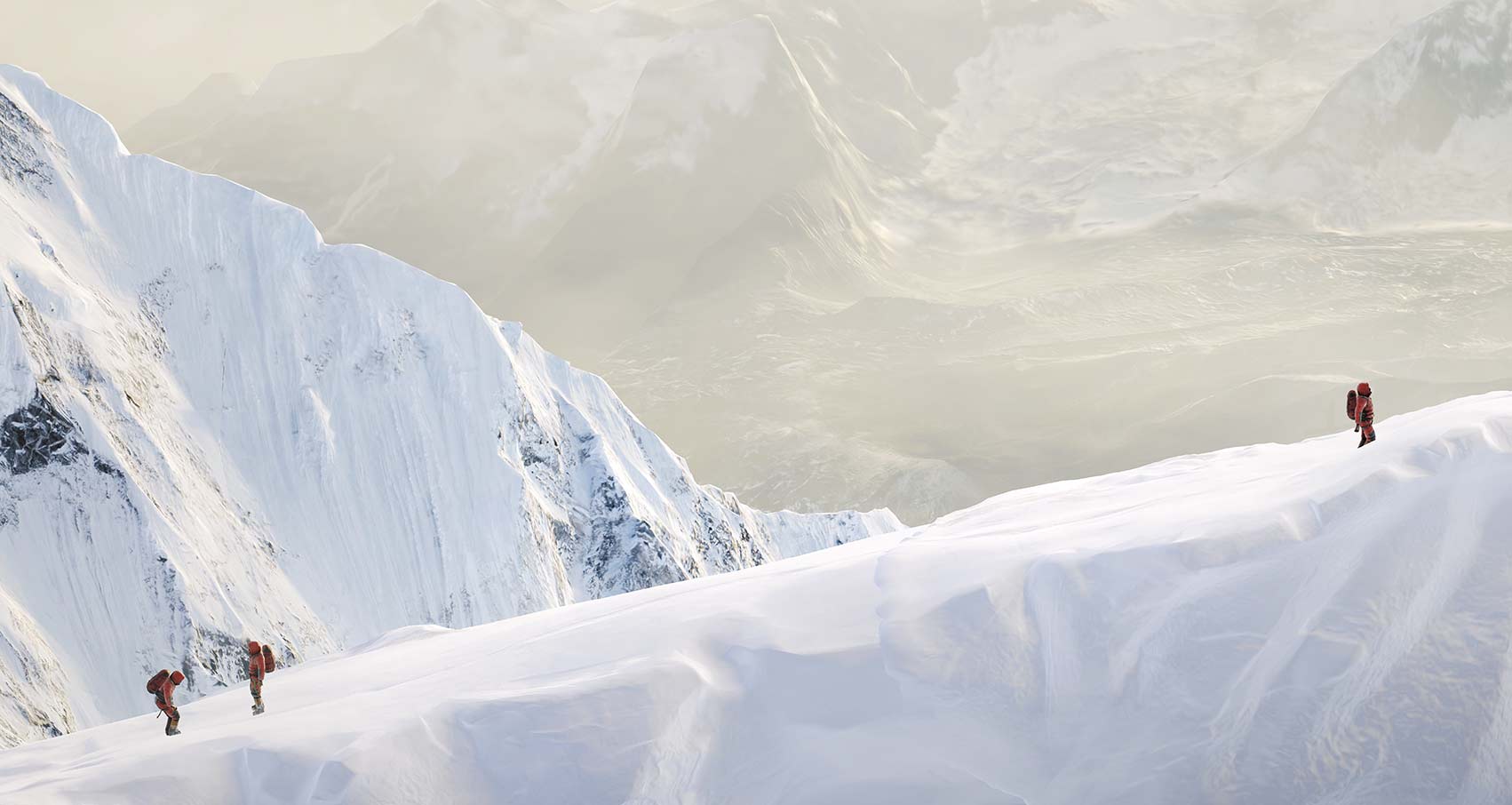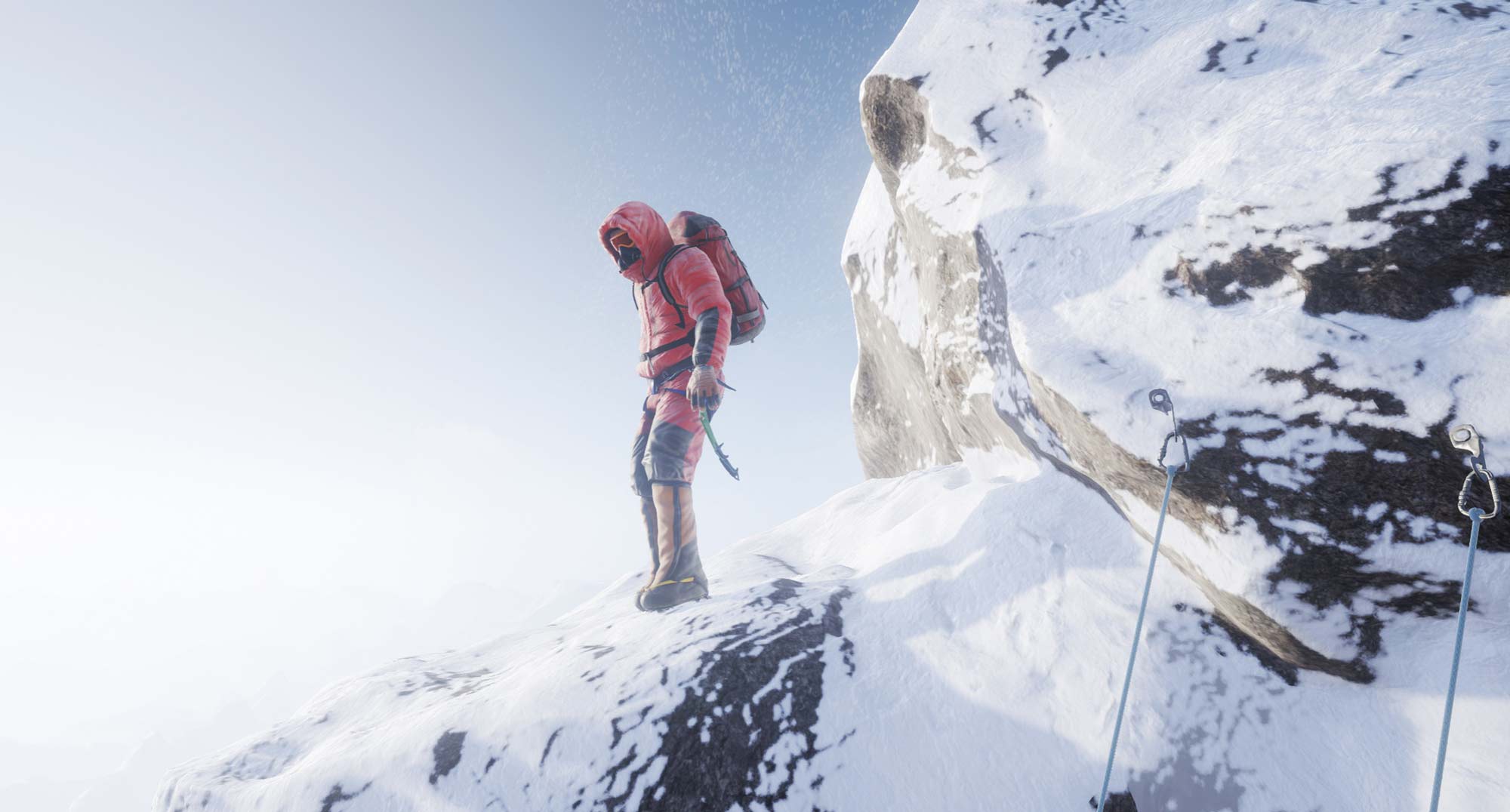Tom's Guide Verdict
Everest VR is an enthralling VR experience that shows off the HTC Vive's capabilities, but it's a bit too short.
Pros
- +
Beautiful vistas
- +
Immersive touch experiences
- +
Realistic sound effects and great narration
Cons
- -
Limited climbing experience
- -
Short with little replay value
- -
Pricey
Why you can trust Tom's Guide
Fun fact: It takes approximately 30 minutes to climb to the summit of Mt. Everest — at least in VR it does. Solfar Studios and RVX's simulation of climbing to the top of the world is finally complete and available on SteamVR, for $24.99. Combining excellent graphics, well-written narration and fairly realistic movements, it provides the thrill of conquering the legendary peak with none of the inherent danger. However, there's not a ton of replay value here.
Away We Go
Before I could begin my ascent, I had to get acquainted with the basics, such as attaching carabiners to ropes and sliding along ropes using ascenders. Once completed, the simulation got fully underway, taking me to Base Camp.

If you're afraid of heights, this might not be the game for you.
Each part of the climb begins with a breathtaking overhead view of the part of the mountain you'll be navigating. There was also a British man who provided some backstory along with a few inspirational quotes. For example, I learned that before the Sherpas take anyone up the treacherous path, they provide fruit and burn incense for the mountain gods. I placed some fruit at the altar and was rewarded with a crow landing in front of me: a sign of good luck.
From there, my group began the climb upward. Word to the wise, if you're afraid of heights, this might not be the game for you. My first trial of the climb was to use the ascenders to help me cross an uncomfortably narrow ladder over a deep crevasse. Making my way slowly over the ice-caked contraption, I stopped midway and took a gander downward.
The sight was at once beautiful and terrifying; directly below me lay a chasm so blue, it almost seemed to glow. I could make out distinctive ridges in the ice as it seemed to shimmer with untold secrets. A call from my Sherpa guide snapped me out of my staring contest with the abyss and I moved on, feeling a slight pull from the Vive controllers as I pulled my way to the next ledge.
MORE: Best HTC Vive Games
Feel the (Freezer) Burn
The Vive's controllers and the audio detail in the game make all the difference in Everest VR. Beneath the whipping winds swirling around me, I could hear and feel my tools as I made my trek upward. The carabiners rewarded me with a hardy snap when I attached them to the ropes, while the haptics in the handheld devices created a perfect illusion of pulling myself along.

Beneath the whipping winds swirling around me, I could hear and feel my tools as I made my trek upward.
I even felt the burn in my arms as I climbed several ladders. After a while, if it weren't for the balmy temperature and normal altitude in the Tom's Guide offices, I would have sworn I was on the mountain, battling the brutal elements that were trying to keep me from reaching the summit.
The Locomotion Dilemma
My biggest gripe with Everest VR extends to most virtual reality games: using teleportation as a means to cover long distances. In an effort to keep simulation sickness from rearing its ugly head, many titles have adopted a point-and-click method of locomotion to keep the walking to a minimum.

When I finally reached the summit, instead of using my ice pick, ropes and other various tools, I simply pointed where I wanted to go with one of my controller's touchpads and clicked. In three short hops, I was at the top of Everest, flag in hand at the top of the world. It kind of took all the fun and effort out of conquering this faux mountain.
MORE: HTC Vive Review: The Cost of True VR Freedom
However, the view at the simulated top is simply magnificent and the closest most will ever get to such an accomplishment. After I planted my flag at the summit, I gazed at the sky and watched a gorgeous sunset give way to a star-strewn sky. After several minutes of stargazing and contemplating my finite existence, I teleported over to the Exit the Summit point and unlocked God Mode.
God Mode
Once unlocked, God Mode lets you teleport to different points of the mountain, where you can look around and appreciate the beauty and vastness of the area. It's a nice feature to have, but it really doesn't add much to the overall experience. Outside of using this mode to show your Vive off to your friends, there isn't much replay value to Everest VR.
Bottom Line
Everest VR is a solid starter title for the HTC Vive. Unless you're afraid of heights, the game delivers a smooth simulation experience that most people can play in comfort. When you aren't busy navigating the narrow passes up the mountain, you're going to see some truly beautiful vistas.
However, as pretty as Everest VR is (and it is gorgeous!), the experience is way too short. Once you reach the top, there's not much else to do.
Sherri L. Smith has been cranking out product reviews for Laptopmag.com since 2011. In that time, she's reviewed more than her share of laptops, tablets, smartphones and everything in between. The resident gamer and audio junkie, Sherri was previously a managing editor for Black Web 2.0 and contributed to BET.Com and Popgadget.


